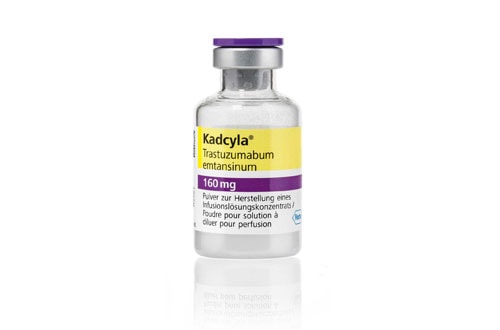
Sanofi’s Zaltrap is one of several drugs to be delisted from England’s Cancer Drugs Fund
NHS England has cut almost one third of the drug regimens covered by the Cancer Drugs Fund (CDF), prompting a backlash from the pharma industry.
The NHS said yesterday it will no longer fund 16 drugs covering 25 cancer indications from the CDF, which was set up in 2010 to pay for drugs not recommended for routine reimbursement by the National Institute for Health and Care Excellence (NICE) but which last year introduced a pricing assessment element to improve its sustainability.
The cuts come after a review of each drug’s safety and efficacy by an independent panel and mean the list of regimens approved for funding via the CDF drops from 84 to 59. It leaves patients without access to several treatments for bowel cancer, chronic myeloid leukaemia and other cancers on the NHS in England.
Medicines to be delisted from the Cancer Drugs Fund on March 12, 2015
| Company | Drug | Area of indication |
| Bayer | Stivarga (regorafenib) | Gastro-intestinal stromal tumours (GIST) |
| Bristol-Myers Squibb | Sprycel (dasatinib) | Chronic myeloid leukaemia |
| Eisai | Halaven (eribulin) | Breast cancer |
| GSK | Arzerra (ofatumumab) | Chronic lymphocytic leukaemia |
| Tyverb (lapatinib) | Breast cancer | |
| Votrient (pazopanib) | Sarcoma | |
| Janssen | Caelyx (doxorubicin hydrochloride) | Sarcoma |
| Velcade (bortezomib) | Lymphoma (2 indications), multiple myeloma | |
| Lilly | Alimta (pemetrexed) | Lung cancer (2 indications) |
| Merck KGaA | Erbitux (cetuximab) | Colorectal cancer (2 indications) |
| Mundipharma | Levact (bendamustine) | Lymphoma (under certain conditions) |
| Novartis | Afinitor (everolimus) | Breast cancer, neuroendocrine tumours, renal cancer |
| Pfizer | Bosulif (bosutinib) | Leukaemia (2 indications) |
| Roche | Avastin (bevacizumab) | Colorectal cancer (2 indications), ovarian cancer |
| Sanofi | Jevtana (cabazitaxel) | Prostate cancer |
| Zaltrap (aflibercept) | Colorectal cancer |
The NHS defended the decision to delist the medicines, claiming it will create “headroom for new drug indications that will be funded for the first time” – backing the view of Malcolm Qualie, pharmacy lead for specialised services within NHS England, in a recent interview with PMLiVE.
A review was also deemed necessary as, if no action was taken to remove drugs, the Fund is projected to have grown to around £420m next year, leading to cuts in other areas of cancer treatment, such as radiotherapy.
Instead, by removing drugs the CDF will be able to grow to a more manageable £340m from April 2015, up from the £280m projected for 2014/15.
The NHS also pointed out that the decision to delist drugs only applies to future patients, meaning that any person currently receiving a drug via CDF financing will continue to receive it, regardless of whether it remains in the Fund’s list.
The CDF remains a sticking plaster
The ABPI’s chief executive Stephen Whitehead
As expected, the news wasn’t taken so favourably by the pharma companies who face a UK sales decline of delisted medicines.
The voices were led by trade body the Association of the British Pharmaceutical Industry (ABPI), which said the decision to delist several treatments was “extremely disappointing and a significant blow to the health and wellbeing of future NHS patients”.
The organisation’s CEO Stephen Whitehead added: “These medicines have been proven to be effective through clinical trials and have already provided benefit to thousands of NHS patients through their prior availability on the Cancer Drugs Fund.”
Individual companies affected by the CDF plans include Sanofi, which faces the loss of Jevtana (cabazitaxel) for hormone resistant prostate cancer following progression on docetaxel and Zaltrap (aflibercept) for advanced bowel cancer. In the past 18 months there have been 1,154 and 707 requests submitted to the CDF for Zaltrap and Jevtana respectively.
Tarja Stenvall, general manager of Sanofi in the UK, said, “We are hugely shocked and disappointed at this decision against Jevtana. We will do everything in our power to appeal this decision and are willing to hold open discussions to find a way forward so that patients still have access to this important medicine.”
Lilly, which loses its listing for Alimta (pemetrexed) in non-small cell lung cancer indications, was also critical what it described as a “flawed assessment of this medicine”.
The company added: “The CDF’s decision to stop funding pemetrexed after four years is a disservice to the 600-plus patients who will no longer be able to continue treatment with a medicine that can give them additional months of life.”

Newer medicines such as Roche’s Kadcyla remain available via the CDF
Among the more contemplative companies was Roche, which escaped having newer cancer drugs such as Perjeta (pertuzumab) and Kadcyla (trastuzumab emtansine) removed from the list, although the CDF will no longer fund its Avastin (bevacizumab) in certain bowel and ovarian cancer indications.
Dr Jayson Dallas, general manager for Roche in the UK, said: “The review demonstrates that industry and NHS England can work together to make sure the very latest medicines are available to patients.”
However, Dr Dallas added that a wider reform of cancer drug reimbursement in the UK was needed and the country can’t rely on the CDF as a long-term solution.
“Industry and the NHS now urgently need to look at the wider system of access to ensure that patients can continue to benefit from more established treatments which the CDF can no longer fund.”
This view was backed by the ABPI’s chief executive Stephen Whitehead who described the CDF as a “sticking plaster”.
“The solution to this issue remains the urgent reform of NICE which will ensure that the right patients get the right medicines at the right time whatever their condition,” he added.




